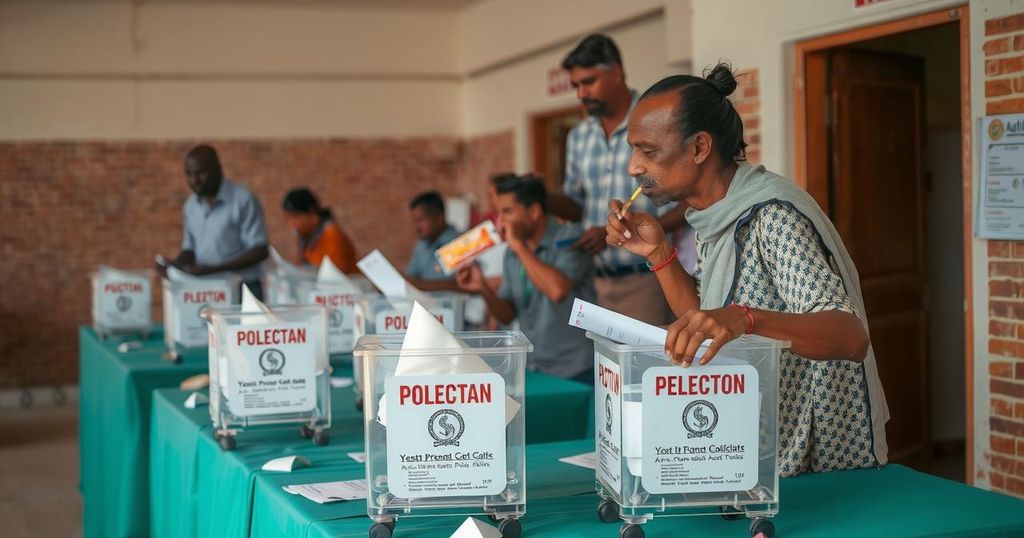Chad’s Parliamentary Election: A Test of Democracy Amid Opposition Boycott
Chad is conducting its first parliamentary election in 13 years amid an opposition boycott, amid allegations of pre-determined results and low voter turnout reported in the capital N’Djamena. President Mahamat Idriss Deby Itno asserts that these elections are essential for transitioning to democracy, while opposition parties voice deep concerns regarding their legitimacy. The electoral process is being monitored by international observers amidst ongoing regional instability.
Voting has commenced in Chad’s first parliamentary election in over a decade, which the government heralds as a critical milestone towards the conclusion of military rule. Voters are tasked with electing a new legislative body, provincial assemblies, and local councils, yet opposition groups have called for a boycott of the polls. As a result, voter turnout appears low in the capital, N’Djamena, amid allegations from opposition factions that the elections have been predetermined.
The government, led by President Mahamat Idriss Deby Itno, asserts that these elections represent a vital transition to democracy. However, opposition leaders vehemently contest the legitimacy of the electoral process, claiming it has been manipulated to favor the ruling party. Many citizens express a desire for change, highlighting pressing issues such as unemployment, inflation, and social justice. Election observers, including international monitors, are overseeing the voting process, which is unfolding in an environment marked by regional instability due to violence from Boko Haram and ongoing tensions in neighboring Sudan.
Chad is one of the world’s poorest nations, with a population of approximately 18 million. This parliamentary election is significant as it represents a shift from over a decade of military oversight, following the death of former President Idress Deby in 2021. President Mahamat Idriss Deby Itno, who succeeded his father, has attempted to position these elections as part of a larger democratic transition despite widespread skepticism among opposition groups and citizens. The environmental challenges faced by nomadic communities further complicate the socio-political landscape, impacting their lives and the electoral process.
In conclusion, Chad’s parliamentary election is a pivotal event that reflects the country’s ongoing struggles with governance and democracy. While the government promotes the polls as a step towards democratic transition, the opposition’s boycott and allegations of fraud illustrate deep-seated mistrust and concerns regarding the electoral process’s integrity. As the votes are cast, the implications for Chad’s future remain uncertain, highlighting a critical moment in the nation’s political landscape.
Original Source: www.aljazeera.com




Post Comment